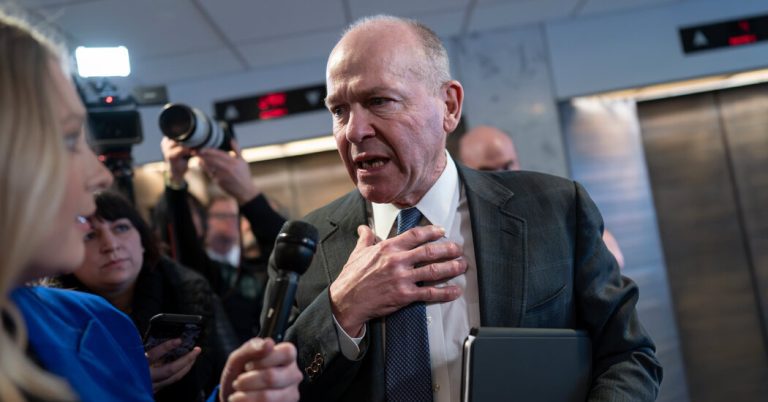Boeing said on Wednesday it would not provide a full-year financial forecast, the clearest sign yet that the company is trying to reassure customers it is prioritizing safety amid growing concerns about its popular 737 Max jets.
Even as it announced its quarterly earnings, the company chose to focus on the debate about quality control and accountability. Boeing is trying to contain the fallout from an incident less than four weeks ago that blew a hole in an Alaska Airlines 737 Max 9 plane shortly after takeoff.
“My focus is on Alaska Airlines Flight 1282 and the actions we are taking as a company to enhance quality and earn the trust of our customers, the trust of our regulators and the flying public,” said Boeing CEO , Dave Calhoun, on a conference call with Wall Street analysts.
“We caused the problem and we understand it,” Mr. Calhoun added, without specifying what Boeing did wrong. “Over these past few weeks, I’ve had tough conversations with our customers, our regulators, congressional leaders and more. We understand why they are angry and we will work to earn their trust.”
As federal officials continued to investigate the Jan. 5 incident, Boeing executives sought to emphasize its efforts to improve safety while reassuring shareholders about its financial performance. Concerns about quality have taken on new urgency after news accounts, including a report in the New York Times, that Boeing workers had opened and reinstalled the panel that blew off the plane, known as a door plug.
The incident scared passengers and forced the pilots to make an emergency landing in Portland, Ore. It renewed concerns among some aviation experts that Boeing has long been focused on growing profits and enriching shareholders through buybacks and dividends, and not enough on engineering and safety. Experts raised similar concerns after two 737 Max 8 plane crashes that killed nearly 350 people in 2018 and 2019.
The impact of the incident on Boeing’s financial performance is not yet known: The results it announced Wednesday were for the three months ended Dec. 31.
In its earnings call on Wednesday, the company said it was producing 737 Max jets at a rate of 38 per month at the end of the year. He hoped to increase that figure to 42 a month this year.
But the Federal Aviation Administration said last week it was restricting Boeing’s ability to ramp up production of all 737 Max planes, including approving any additional assembly lines, until the company proved it had resolved the quality control issues.
On Monday, Boeing also withdrew its request for an exemption from certain safety standards for the 737 Max 7, a plane that the FAA has not yet certified. Boeing had hoped the FAA would allow the Max 7 to fly passengers while the company worked to fix a problem related to the model’s anti-icing system, but had faced growing opposition to its plan after the Alaska Airlines incident.
The company said Wednesday it lost $30 million in the fourth quarter, an improvement from a loss of $663 million a year earlier. Revenue rose to $22 billion, up from about $20 billion a year earlier.
The National Transportation Safety Board is expected to release a preliminary report on the Alaska Airlines incident in the coming days.




